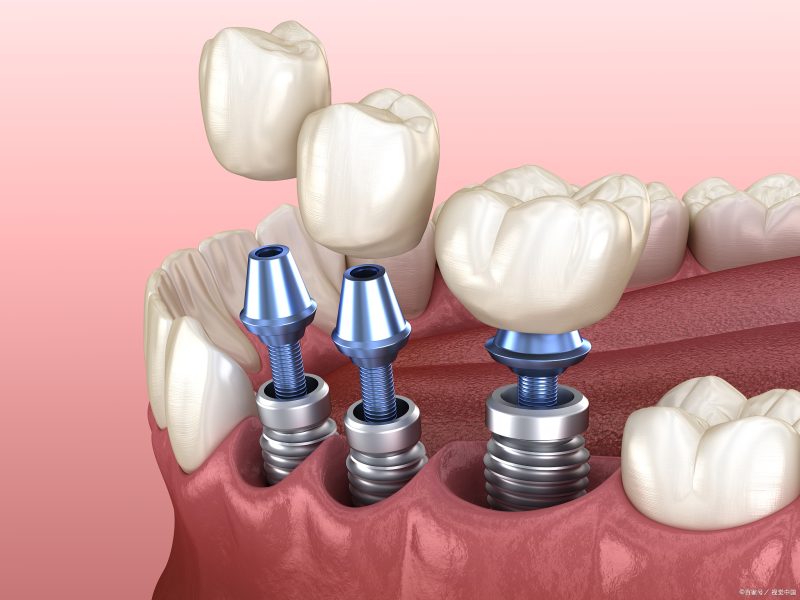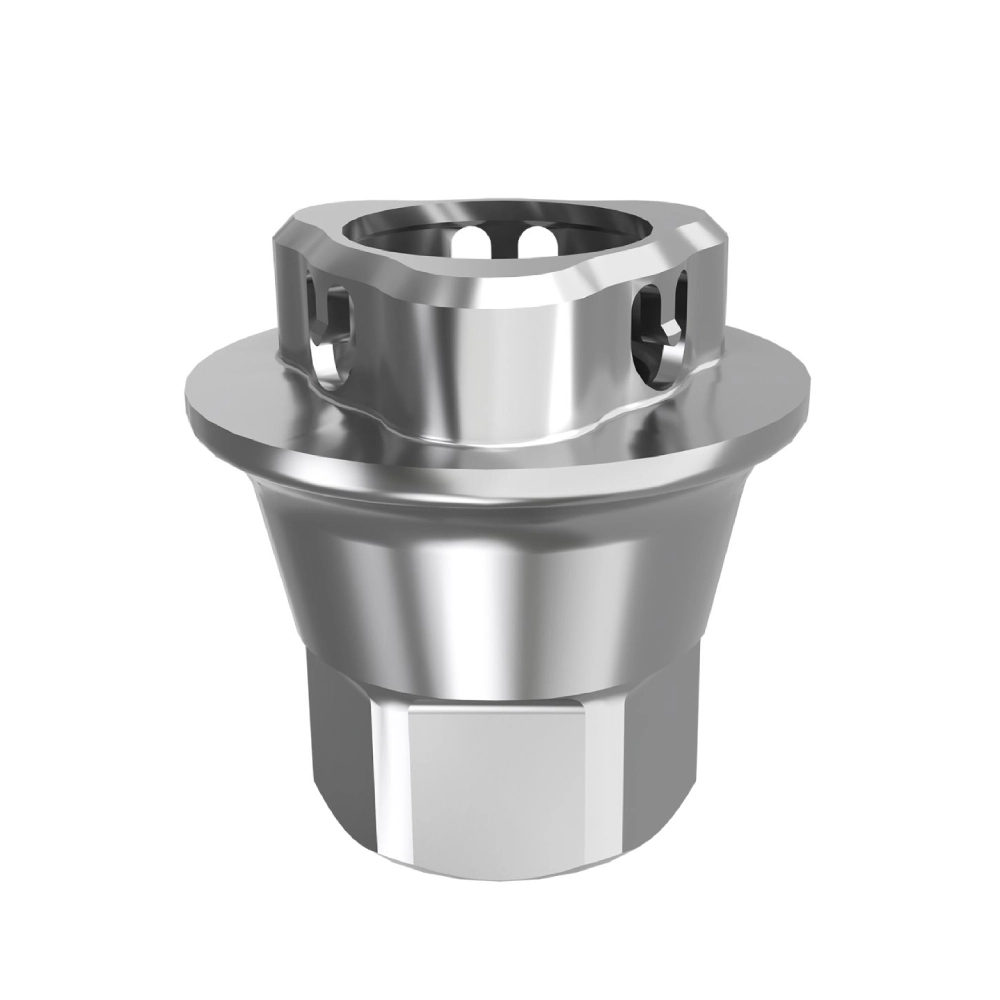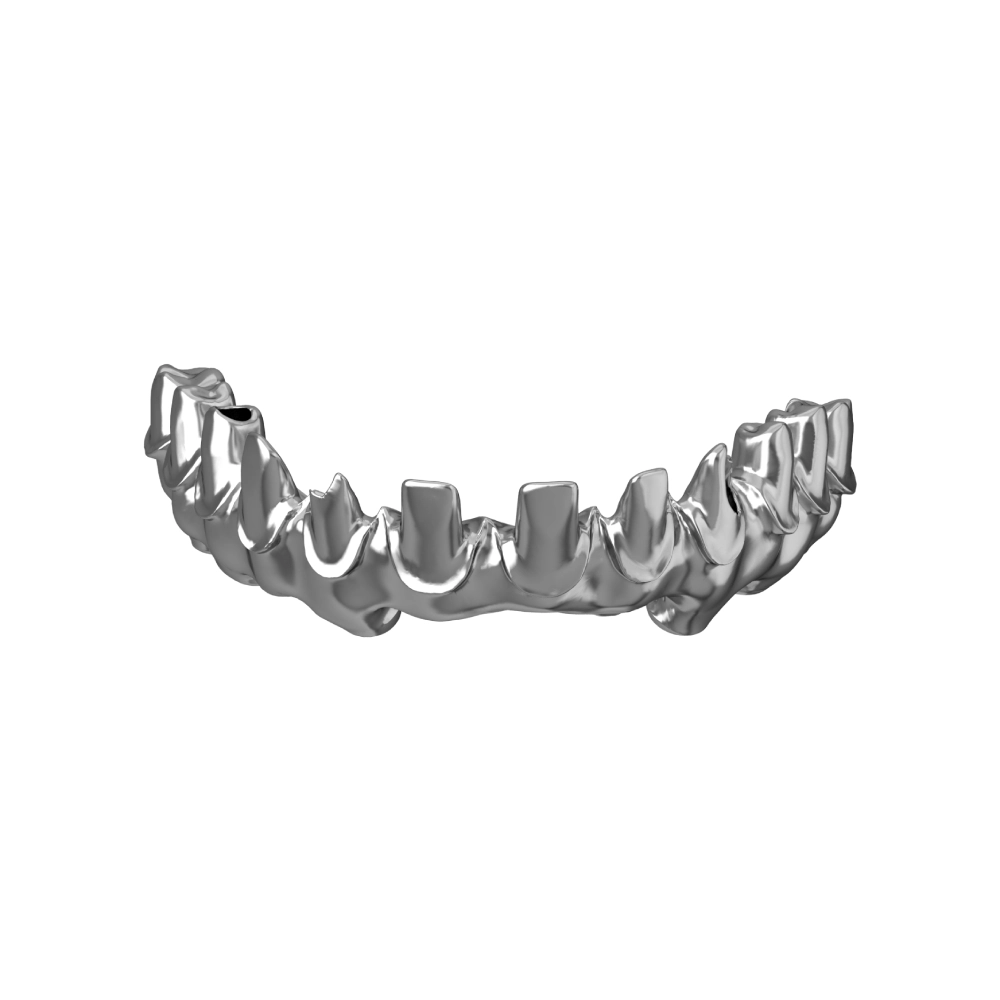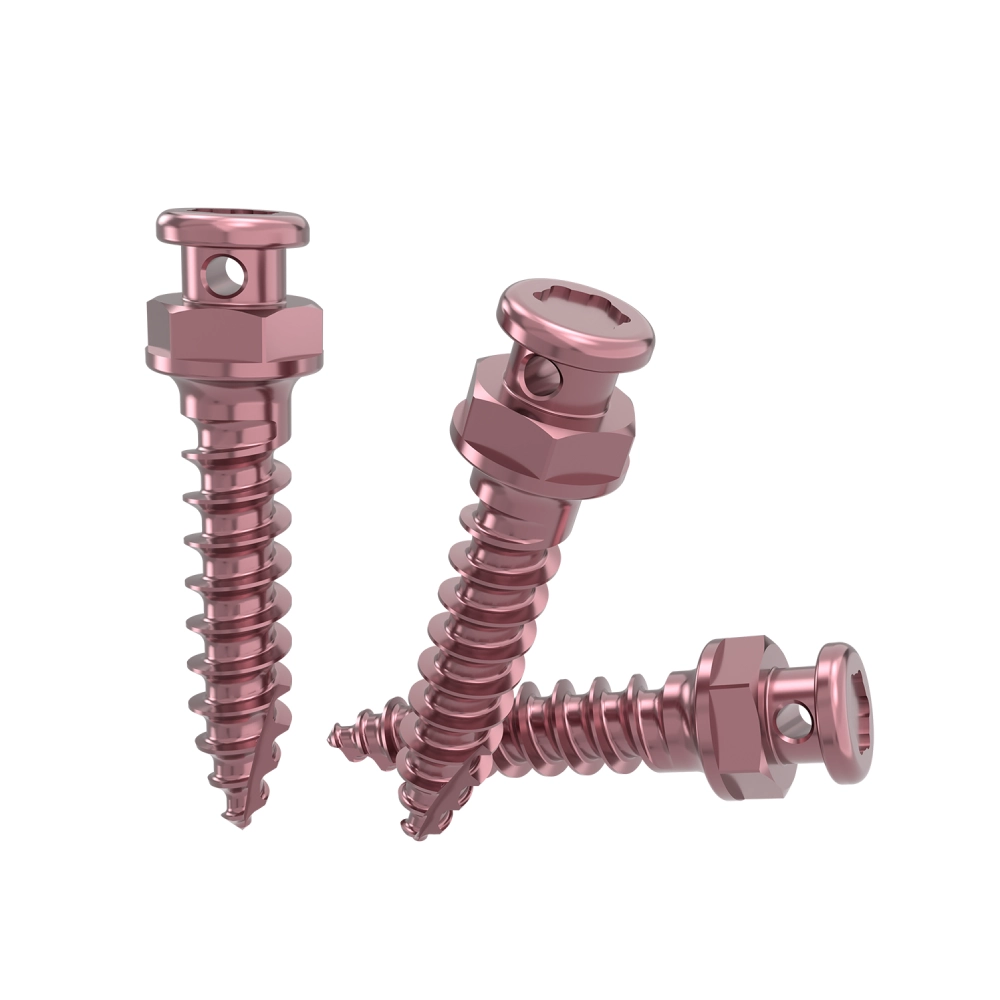Dental implants, as a significant health decision, not only concern the restoration of dental aesthetics and functionality but also require careful planning and time investment. The entire process, from the initial consultation to the final restoration, often spans several months, with each step being crucial. Before embarking on this journey, it is essential to thoroughly understand the timeline for dental implants and consider individual factors and needs. Dental implants, a widely popular tooth replacement option, provide an ideal long-term solution for patients with missing teeth due to their durability and stability. However, the process is not instantaneous; it involves several precise steps, from preoperative evaluation and implant placement to the final crown restoration. Let’s walk you through each stage of the dental implant journey to give you a clearer understanding of the timeline involved.

Overview of the Dental Implant Timeline
The complete process of dental implants typically takes between 3 to 6 months, but this time frame may vary depending on each patient’s specific situation. The following is a general timeline to help you better plan for this journey:
- Initial Consultation and Comprehensive Examination Phase: This initial phase usually requires 1 to 2 professional visits. During this period, the dentist will thoroughly evaluate your oral health, including bone quality, gum condition, and the specific location of the missing tooth, to determine the most suitable dental implant plan for you.
- Implant Placement Surgery: Following the initial consultation, you will undergo the implant placement surgery. This key step is typically completed in a single visit. During the procedure, the dentist will carefully insert the implant into the planned position, laying a solid foundation for the subsequent tooth restoration.
- Healing and Recovery Period: After the implant is placed, the next 3 to 6 months are the critical healing and recovery period. During this time, the implant will gradually fuse with your jawbone, forming a stable support structure. This process is crucial to the success of the dental implant, requiring patience and adherence to your dentist’s postoperative care instructions.
- Abutment and Crown Installation Phase: Once the implant has fully integrated with the bone, you will proceed to the abutment and crown installation phase. This stage typically requires 2 to 3 visits. First, the dentist will place the abutment on the implant to support and secure the crown. Then, through precise customization and adjustments, the crown will be installed on the abutment, restoring the appearance and function of your missing tooth.
Please note that the actual duration of the dental implant process may vary due to factors such as the patient’s oral condition, bone quality, implant type, and quantity. Most patients can expect the complete dental implant process to take approximately 6 to 9 months.
Initial Consultation and Examination
The initial consultation and comprehensive examination phase play a crucial role at the start of dental implant treatment. During this stage, your dentist will invite you for 1 to 2 thorough visits, aiming to conduct a comprehensive evaluation of your oral health. Through a detailed oral examination, a thorough review of your medical history, and necessary X-rays or advanced CBCT (Cone Beam Computed Tomography) scans, the dentist will accurately assess your gum condition, jawbone density, and any potential risk factors, such as proximity to nerves or other structures. This information forms the basis for creating a personalized treatment plan and is key to ensuring the implant can be successfully placed and remain stable over the long term.
If any factors that might affect the success rate of the implant, such as insufficient bone mass, are discovered during the examination, the dentist may recommend additional procedures, such as bone grafting, to increase jawbone density and stability. Although this may extend the treatment period by several months, it is an essential step to ensure the long-term success of the implant. Thus, the initial consultation is not only a process to assess your suitability for implants but also a valuable opportunity for you to build trust with the dentist and discuss any needs or concerns.
Dental Implant Surgery
Once you are confirmed as a suitable candidate for the dental implant procedure, the next exciting step is the surgery itself. On the day of surgery, you will receive local anesthesia to ensure the surgical area is completely numb, keeping you comfortable throughout the process. Implant placement for each tooth usually takes 1 to 2 hours, depending on factors such as the implant’s location, the number of implants, and your individual case.
For most patients, the implant surgery can be completed in just one visit. However, for more complex cases, multiple implants may need to be placed gradually over several weeks or months to ensure optimal results. After the surgery, you may experience mild swelling and tenderness, which is a normal physiological response. Your dentist will prescribe appropriate medications to help control postoperative discomfort and recommend a soft-food diet to promote faster recovery.
The core of dental implant surgery is the precise placement of high-quality titanium implants into the jawbone. This process not only tests the dentist’s professional skills but also requires the patient’s cooperation. The implants are positioned below the gums at the site of the missing teeth, where they integrate tightly with the jawbone, laying a solid foundation for subsequent tooth restoration. After surgery, you will need to patiently wait for the implant to fuse with the jawbone, a process known as osseointegration. This typically takes 6 weeks to 3 months, depending on your body’s healing capacity. While the wait may seem long, rest assured that this period is critical to ensuring the long-term success and stability of your dental implant.

Postoperative Recovery
After surgery, as the effects of anesthesia gradually wear off, you may experience varying degrees of swelling, bruising, and pain. The severity of these symptoms is usually closely related to the complexity of the surgery, especially if the procedure involved tooth extractions or a preliminary bone graft. While bone grafting can sometimes be done simultaneously with the implant surgery, in most cases, to optimize treatment outcomes, it is performed as a separate procedure prior to the implant surgery, potentially extending the entire process by up to 8 weeks. In the initial stages post-surgery, swelling, bruising, and pain are common reactions, and the intensity depends on the extent of manipulation required during implant placement, particularly if adjacent teeth had to be extracted. It is important to note that the healing period between implant surgery and final crown placement is crucial and typically takes about 3 months, depending on the healing speed of the gums and bone.
Abutment and Crown Placement
Once the implant has successfully fused with the jawbone and achieved stability, the next important step is the placement of the abutment and crown. This process usually requires 2 to 3 visits to the dentist. First, the dentist will carefully screw the abutment into the implant, which serves as the “foundation” for the new tooth, providing solid support for the crown.
Next, the dentist will take precise molds of your mouth, which will be sent to a professional lab for the custom design of an artificial crown tailored to your oral condition. The crown is meticulously crafted to ensure a perfect match in color, shape, and size with your natural teeth.
Approximately 2 to 3 weeks later, when the custom crown is completed and returned to the clinic, you will undergo the final crown placement procedure. During this step, the dentist will carefully attach the crown to the abutment and make adjustments to ensure comfort and proper bite alignment.
During the waiting period between implant integration and final crown installation, your dentist may provide a temporary crown to maintain the aesthetics and functionality of your mouth, allowing you to carry on with your daily life confidently.
Overall, the abutment and crown placement phase is much quicker compared to the surgical phase, typically completed within 2 to 4 weeks, allowing you to enjoy the benefits of a perfect smile and restored oral function as soon as possible.
Key Factors Affecting Total Time
Various key factors influence the overall timeline for dental implants. These factors interact to determine the duration of the treatment process. Here are some major influencing factors:
- Individual Patient Differences: Each person’s physical condition and healing ability are unique. Some patients may have better bone quality and faster healing, shortening the overall treatment cycle. Conversely, patients with lower bone density or who require additional treatments (e.g., bone grafting) may experience a longer treatment period.
- Type and Number of Implants: Different types of implants have various designs and characteristics, which may affect the complexity of the surgery and healing time. The number of teeth needing implants also plays a significant role in determining the total time. Implanting multiple teeth generally requires a longer treatment cycle.
- Oral Health Condition: The patient’s oral health has a crucial impact on the success and overall time of the implant process. If there are issues like periodontal disease, cavities, or other oral problems, additional treatments may be required before the implant surgery, extending the overall treatment time.
- Surgical Complexity: The complexity of the implant surgery is also a key factor affecting total time. For example, if there is insufficient bone in the implant area, a bone graft procedure may be required, increasing the complexity and duration of the surgery. Additionally, if the implant needs to navigate areas with dense nerves or blood vessels, the surgery will be more complex and time-consuming.
- Postoperative Care and Healing: Postoperative care and healing are equally important for the success and overall time of the implant process. Patients must strictly follow their dentist’s postoperative care instructions to promote implant healing and stabilization. If postoperative complications such as infections arise, additional treatment time may be required.
- Dentist’s Experience and Skills: The experience and skill level of the dentist are significant factors influencing the total time of the dental implant process. An experienced dentist can more accurately assess the patient’s oral condition, create a more reasonable treatment plan, and perform the procedure with greater expertise, thereby shortening treatment time and improving success rates.
How to Plan Ahead and Understand the Detailed Timeline
Embarking on dental implant treatment, a process that can be both lengthy and detailed, requires thorough preparation in scheduling to accommodate multiple visits and waiting periods. To start, I recommend having an in-depth discussion with your implant dentist to fully understand your specific situation, including your oral health status, implant choices, the complexity of the procedure, and any factors that might affect the treatment time.
During this discussion, you might ask the following questions to help you plan better:
What does my treatment plan specifically include? Ask your dentist to explain each step from the initial consultation to the final crown placement, as well as the approximate time required for each step.
Do I need any additional treatments or surgeries? If your oral health requires extra attention, such as bone grafting or periodontal treatment, how will these additional treatments affect the overall treatment timeline?
What type and number of implants will I need? Different implant types and quantities may affect the complexity of the surgery and healing time, so understanding this information is crucial for setting a realistic timeline.
What are the post-operative care and follow-up plans? Inquire about detailed post-operative care instructions, including how to promote healing, prevent infections, and the scheduling of follow-up appointments.
How can I balance treatment time with my daily life? Discuss with your dentist how to manage work, family, and other activities during the treatment period to ensure you can fully cooperate with the treatment and minimize unnecessary stress.
By thoroughly discussing your specific situation, you can obtain a more accurate and personalized treatment timeline. Although the process of dental implants may take several months, remember that this commitment will bring long-term benefits, including permanent tooth replacement, a natural feel and function, and durability.
Therefore, planning ahead and understanding the detailed timeline is crucial. It helps you start this transformative dental implant journey with realistic expectations and maintain a positive and patient attitude throughout the process. Additionally, maintaining close communication and collaboration with your implant dentist is key to ensuring the success of your treatment.
Conclusion
Regarding the duration of the dental implant process, patients should be well-prepared mentally: the entire procedure may span up to 9 months. However, this waiting period is not in vain, as the end result will be a permanent replacement tooth that closely resembles a natural tooth in appearance, feel, and function. Therefore, when considering the value of the wait, it’s clear that all the patience and time invested are well worth it to achieve a nearly perfect dental restoration.
FAQ
Q: How long does the dental implant process take from start to finish?
A: The duration of the dental implant process varies by individual, but generally, the entire process—from the initial consultation and implant surgery to the final crown placement—can take between 3 to 9 months. The specific time depends on factors such as the patient’s oral health, the type and number of implants, the complexity of the surgery, and the healing process post-surgery.
Q: How painful is dental implant surgery?
A: Dental implant surgery is usually performed under local anesthesia, so patients do not feel pain during the procedure. After the anesthesia wears off, there may be some swelling, bruising, and mild discomfort, but most patients can manage these symptoms effectively with pain medication prescribed by their dentist. Overall, the pain associated with dental implants is relatively minimal, and most patients tolerate it well.
Q: How long after tooth extraction can you get an implant?
A: The timing for placing an implant after tooth extraction depends on several factors, including the healing of the extraction site, the patient’s overall health, and the specifics of the implant plan. Generally, if the extraction site has sufficient bone and heals well, immediate implant placement (known as immediate implantation) may be recommended. However, in most cases, a waiting period of several weeks to a few months is required to ensure that the extraction site has healed adequately before placing the implant.
Q: Will I have a temporary tooth while waiting for the implant?
A: While waiting for the implant to integrate with the bone and become stable, patients may need to wait for a period of time. To maintain aesthetics and functionality, the dentist may provide a temporary crown or denture to fill the gap left by the missing tooth. This temporary restoration will be placed in the mouth until the final crown is made and installed.
Q: How long will I be without a tooth after the implant procedure?
A: After the implant procedure, while waiting for the implant to integrate with the bone and stabilize, patients can opt to wear a temporary crown to maintain aesthetics and functionality. Once the final crown is completed and installed, the patient will have a fully restored tooth and will no longer be in a “toothless” state.
Q: What reasons might make someone unsuitable for dental implants?
A: Several factors might make a patient unsuitable for dental implants, including:
Severe oral health issues, such as untreated periodontal disease or oral infections.
Insufficient bone volume to support the implant.
Certain chronic illnesses or ongoing treatments may affect oral healing.
Bad habits like smoking or excessive alcohol consumption, can increase the risk of implant failure.
Age, overall physical condition, and general health can also impact the feasibility of the implant procedure.
Before deciding to proceed with dental implants, the dentist will conduct a comprehensive oral examination and assessment to determine if the patient is a suitable candidate. If any potential issues or risks are identified, the dentist will recommend appropriate measures or consider alternative options.









